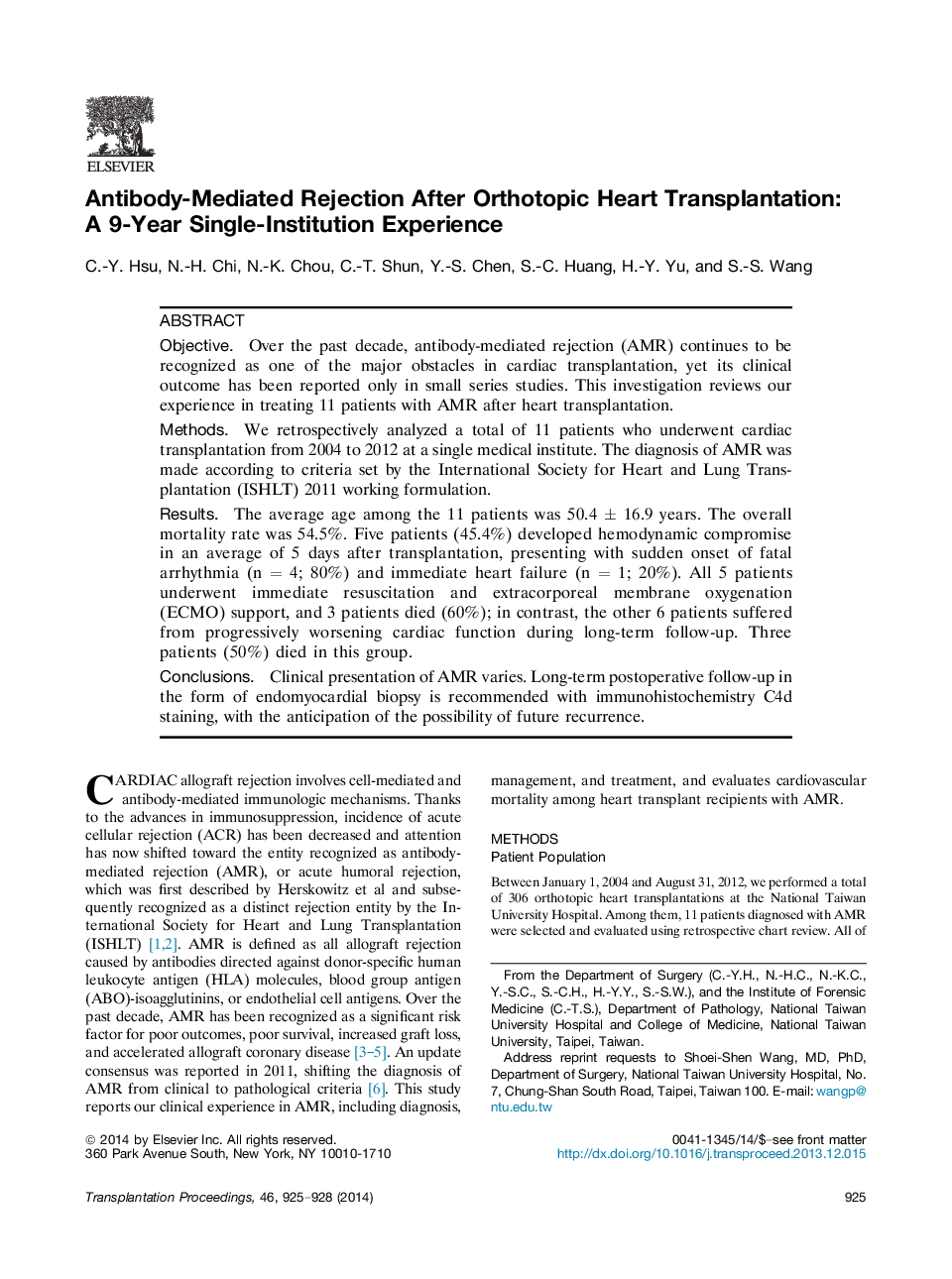| Article ID | Journal | Published Year | Pages | File Type |
|---|---|---|---|---|
| 4258428 | Transplantation Proceedings | 2014 | 4 Pages |
ObjectiveOver the past decade, antibody-mediated rejection (AMR) continues to be recognized as one of the major obstacles in cardiac transplantation, yet its clinical outcome has been reported only in small series studies. This investigation reviews our experience in treating 11 patients with AMR after heart transplantation.MethodsWe retrospectively analyzed a total of 11 patients who underwent cardiac transplantation from 2004 to 2012 at a single medical institute. The diagnosis of AMR was made according to criteria set by the International Society for Heart and Lung Transplantation (ISHLT) 2011 working formulation.ResultsThe average age among the 11 patients was 50.4 ± 16.9 years. The overall mortality rate was 54.5%. Five patients (45.4%) developed hemodynamic compromise in an average of 5 days after transplantation, presenting with sudden onset of fatal arrhythmia (n = 4; 80%) and immediate heart failure (n = 1; 20%). All 5 patients underwent immediate resuscitation and extracorporeal membrane oxygenation (ECMO) support, and 3 patients died (60%); in contrast, the other 6 patients suffered from progressively worsening cardiac function during long-term follow-up. Three patients (50%) died in this group.ConclusionsClinical presentation of AMR varies. Long-term postoperative follow-up in the form of endomyocardial biopsy is recommended with immunohistochemistry C4d staining, with the anticipation of the possibility of future recurrence.
